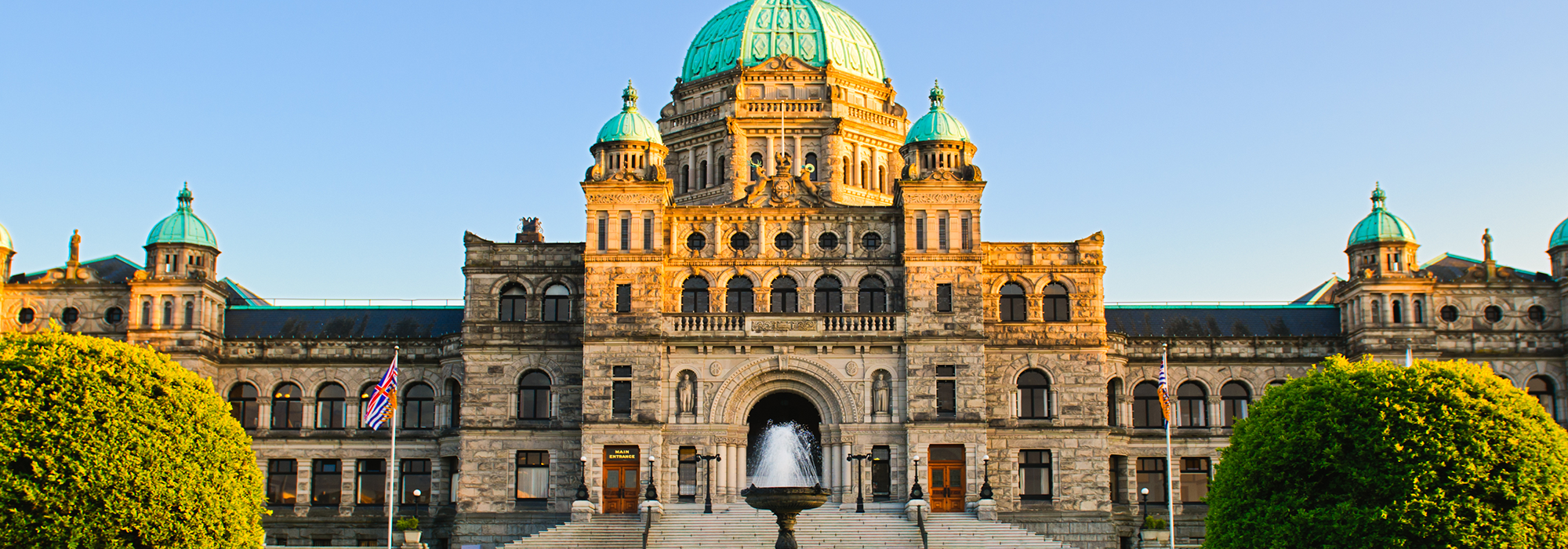
As B.C. was busy dotting the i’s and crossing the t’s on its draft Climate Leadership Plan, some good news arrived from Canada’s Ecofiscal Commission. The commission released a new report examining how carbon pricing can impact the competitiveness of Canada’s economy. This is an important issue because many people believe that impact could be significant, so it represents a significant barrier to progress on climate change.
The good news can be summarized as follows: 1) the portion of the B.C. economy where carbon pricing could represent a material competitiveness concern is relatively small, and 2) in sectors where there is a material concern, it can be addressed in ways that maintain the incentive to reduce carbon pollution. In other words, B.C. can move ahead with next steps on the carbon tax and other climate policies with confidence that the economy will remain strong.
Carbon pricing impacts competitiveness in a small portion of the economy
Two percent. That’s the percentage of B.C.’s economy that the commission found to be both emissions-intensive and trade-exposed at a $30 per tonne carbon price. It’s the combination of these characteristics that means a sector’s competitiveness could be at risk from carbon pricing. While the other 98 per cent may not like the carbon tax (or any tax for that matter), the commission’s analysis shows that $30 per tonne does not materially impact their competitiveness.
But what if the carbon tax increased? As noted in its submission on the province’s Climate Leadership Plan, the B.C. Business Council argues against increasing the carbon tax because of competitiveness concerns. According to the commission, an increase to $120 per tonne would increase the portion of the economy at risk from two per cent to nine per cent. There’s every reason to better understand and address concerns in that nine per cent (see the next bit of good news), but it’s great news that it doesn’t look to be a material concern for 91 per cent of the economy — even with much stronger climate policies.
If B.C. moves to that $120 per tonne, the nine per cent of the economy where there are concerns includes portions of the aluminum, cement, coal mining, natural gas, and paper sectors. The commission also expects that liquefied natural gas would be included in that list if projects did proceed, but they couldn’t make a definitive assessment in the absence of actual data. These percentages shouldn’t be treated as absolutes, and they will depend on the thresholds used to determine if a sector is emissions-intensive and trade-exposed. The thresholds used by the commission were that a given carbon price needed to represent at least five per cent of a sector’s GDP and at least 15 per cent of their GDP needed to be exposed to competition from other jurisdictions.
It’s also worthwhile to note that, for a few reasons, the two per cent to nine percent should be viewed as an upper bound:
- The commission doesn’t consider opportunities to reduce carbon pollution within a sector, which would reduce the amount they pay in carbon tax and therefore reduce any impacts on competitiveness. The commission’s analysis assumes that companies do nothing to reduce carbon and therefore continue paying the full carbon price. We know from B.C.’s carbon tax experience and other examples, companies will innovate to reduce carbon and minimize their costs. For example, there are low cost opportunities to reduce methane emissions from the natural gas sector — taking advantage of these opportunities would improve the sector’s competitiveness.
- They don’t assume any climate policy in other jurisdictions — i.e. a world where B.C. has a carbon price and no one else does. We know that not to be the case, and progress in Ontario, Quebec, California and Alberta demonstrates how carbon pricing is moving in North America. There are more positive examples if we look globally. And there’s no need to limit this to carbon pricing — policies like Obama’s clean power plan aren’t an explicit carbon price, but the plan will drive the same shift to renewable energy that a carbon price would.
- They don’t account for how government will use the carbon pricing revenue and don’t account for any of the revenue being used to reduce other taxes in the way B.C. reduced income taxes in the first phase of the carbon tax. If a portion of new carbon tax revenue were used to reduce corporate taxes or help businesses and industry reduce their carbon pollution, it would reduce any impacts on competitiveness.
So if B.C. were to increase the carbon tax to $120 per tonne over the next decade (a path that would be similar to the Pembina Institute’s recommendations to the B.C. government), it could impose competitiveness concerns on up to nine percent of the economy. If those sectors take action to reduce their carbon pollution, the government uses carbon tax revenues to reduce other costs, other jurisdictions continue to implement new actions, or all of the above, the percentage will be lower.
Competitiveness concerns can be managed while meeting climate objectives
Even though it’s encouraging that we don’t need to be pay special attention to more than 90 per cent of the economy, that shouldn’t give the impression that the up to nine percent doesn’t matter. I wouldn’t want to see economic activity from those sectors moving to another jurisdiction because of climate policy — that would undermine economic performance at home and serve no global environmental benefit.
Thankfully, there’s no reason why the province can’t provide targeted support in the sectors where it’s justified until the jurisdictions they’re competing with have comparable policies in place. The approach B.C. took in this year’s budget for the cement sector is a good example: they provided targeted support to a sector that would qualify as ‘more exposed’ according to the commission’s research, and they did so in a way that actually enhanced the incentive to reduce carbon pollution because the funding is intended to help the sector transition to cleaner energy sources.
A less positive example (also in B.C.) is the approach used for greenhouse growers, where the government chose to exempt them from the carbon tax. This was bad economic and environmental policy on two fronts. To start with, the approach eliminated the incentive for the sector to reduce carbon. If governments take this approach, making progress on climate becomes increasingly difficult. For example the two percent of B.C.’s GDP that is ‘more exposed’ at $30 per tonne accounts for 22 per cent of the province’s carbon pollution.
The second problem is that in the case of greenhouse growers, there wasn’t a strong rationale for any sort of compensation. The sector is not a ‘more-exposed’ sector in the commission’s analysis, and earlier analysis from the Pacific Institute for Climate Solutions found no evidence that the carbon tax had negatively impacted the agriculture sector’s competitiveness. This case highlights the responsibility of governments to set transparent thresholds that they apply consistently across sectors and regularly assess. All sectors can be expected to make the case that they are concerned about competitiveness and that they deserve compensation. Those concerns shouldn’t be ignored, but nor should they be accepted without scrutiny.
For governments looking to find a path forward to meet climate and economic objectives, this report should be a huge boost of momentum. For B.C., hopefully it helps to give the province the confidence it needs to come forward with an ambitious draft Climate Leadership Plan that includes a new schedule of carbon tax increases. Putting an end to the carbon tax freeze would put B.C. back in the business of being a climate leader.







